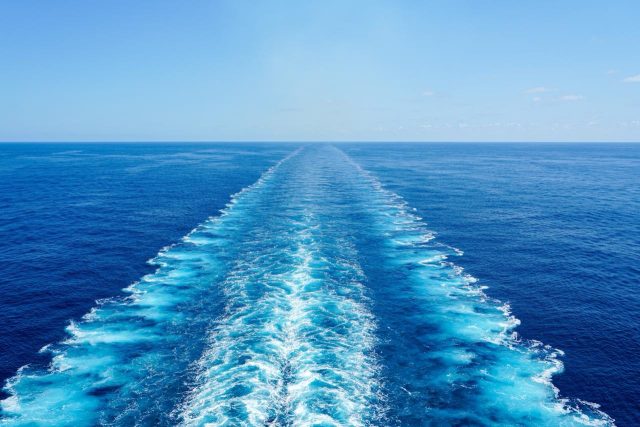
From July 10 to 12, in Naples, the European Conservatives and Reformists Party (ECR) will host a three-day conference of meetings, debates, and strategic visions for the future of Europe. One of the most anticipated and significant panels will be Blue Economy and Jobs: The Three Seas” A symbolic yet precise title, encapsulating the main objective: to restore the sea to its central role in economic growth, geopolitical stability, and inter-nation cooperation within Europe.
The panel will feature high-level political and business leaders. Mateusz Morawiecki, Polish MP, former Prime Minister, and now President of the ECR Party, will open the debate with a strong position on economic sovereignty and energy independence. Nello Musumeci, Italy’s Minister for Civil Protection and Maritime Policies, will contribute his government experience in making the Mediterranean a strategic resource. Francesco Acquaroli, President of the Marche Region, will share the success of local coastal development, while Alberico Gambino, MEP and member of the Foreign Affairs Committee, will discuss maritime interests within the broader international framework. The Spanish perspective will be represented by Nora Junco Garcia, MEP from the PECH Committee (Fisheries), and Marcello Di Caterina from the Grimaldi Group will bring in the voice of private enterprise, showcasing the strategic importance of maritime logistics in the Mediterranean.
The Three Seas: A Natural Corridor for European Sovereignty
The reference to the “Three Seas” is far from symbolic. It draws upon the strategic Three Seas Initiative, launched in 2015 to promote cooperation among the countries bordering the Baltic Sea, the Black Sea, and the Adriatic Sea—three critical maritime areas for Europe’s energy security, transport connectivity, and defense posture.
The Baltic Sea serves as a key energy route for northeastern Europe and links the continent to Scandinavia. The Black Sea is a geopolitical junction connecting Europe, the Caucasus, and Central Asia, made even more vital by the ongoing war in Ukraine. The Adriatic Sea is the natural gateway connecting Central Europe with the Mediterranean, serving as a core axis for Italy, Croatia, and the Western Balkans.
The Three Seas Initiative, strongly supported by conservatives, aims to enhance infrastructure investment, boost energy and transport interconnectivity, and defend national sovereignty. In a European landscape often dominated by the Franco-German axis, this initiative rebalances the focus toward Central and Southern Europe, restoring the strategic importance of coastal nations like Italy and Poland.
Blue Economy: Real Wealth and Lasting Jobs
The Blue Economy is not a buzzword—it is a concrete, strategic vision for a productive Europe. It encompasses vital sectors such as fishing and aquaculture, shipbuilding, coastal tourism, maritime transport, port logistics, and offshore renewable energy. It is an economy rooted in real work, the value of natural resources, practical sustainability, and regional innovation.
From a conservative perspective, economic development must uphold work, enterprise, and environmental stewardship as interlinked and non-negotiable. The Blue Economy creates qualified, well-paid, and territorially grounded jobs, a stark contrast to a financialized and delocalized economy. It is a tangible response to rising unemployment, coastal depopulation, energy insecurity, and the need to rebuild local industries.
Europe must invest in this sector with a long-term strategy that supports coastal communities, training for maritime professions, and revitalization of port infrastructure. For Italy—with its 8,000 kilometers of coastline—this is not a choice, but a necessity.
The Mediterranean and the Mattei Plan: Italy as a Bridge Between Continents
Within this broader framework, a key focus will be on the Mattei Plan, a strategic economic and geopolitical vision promoted by the Italian government to build a new partnership between Italy and Africa. In this context, the Mediterranean is not a border, but a bridge—a space for commerce, infrastructure, energy cooperation, and cultural exchange.
Italy, given its geographic position and maritime tradition, has the opportunity to become the natural link between Europe and Africa. The Mattei Plan seeks to move away from colonial or paternalistic models and instead foster mutual development, with investments in education, agriculture, energy, and infrastructure. The Mediterranean thus becomes a corridor of stability, not a crisis zone.
For conservatives, this is about more than economics—it is about reclaiming influence, securing sea routes, protecting borders, and creating lasting value at home and among partner nations.
A Compass for Europe’s Future
The “Blue Economy and Jobs: The Three Seas” panel will be far more than a technical discussion. It will be a strategic and political statement. For European conservatives, the sea is not merely a resource—it is a cultural and geopolitical horizon. While much of today’s political debate revolves around abstract digital trends and ideological visions, the Blue Economy is a return to the concrete, the productive, and the sovereign.
Because there is no sovereignty without control of the seas, and there is no European future without a vision that starts from our ports—connecting nations, creating work, and defending freedom.



 Subscribe
Subscribe